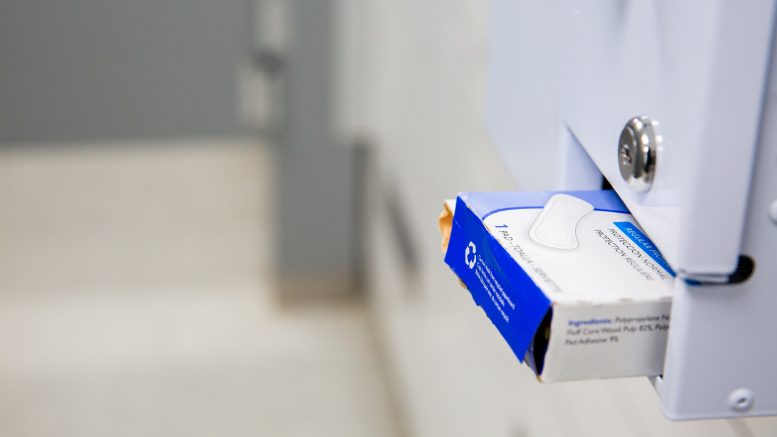As menstrual equity projects spread across the country, the University of Manitoba project, Period Poverty and Equity on Campus and Beyond, is undertaking an audit of all U of M washrooms to judge the availability of menstrual products on campus.
Julia Smith, an assistant professor of labour studies and co-investigator on the project said federally-regulated employers are mandated to provide menstrual products to employees at no cost and said she hopes provinces will follow the federal government’s lead. Smith said she hopes the audit can give the university a better idea of how accessible menstrual products are on campus. She pointed out that U of M serves tens of thousands of people.
“We’re basically like a small city,” Smith said of the U of M. “People live here, they work here, they spend a lot of time here, and menstruation is something that a large segment of the population deals with.”
Smith herself has struggled to find washrooms with accessible products on campus. The Fort Garry campus alone has over 1,500 washrooms, and it is unclear how many provide menstrual products.
“For many people it’s something they don’t think about unless they’ve been in that situation,” she said.
The goal of the audit is to determine which washrooms offer menstrual products, dispensers and disposal bins.
Victoria Romero, a student research assistant on the project, said she looks forward to understanding the scope of menstrual equity in all washrooms, not just the ones labelled for women.
“We need to make sure that the spaces that are available to all people are accessible for the needs of all people,” they said. Romero, then-UMSU vice-president advocacy, was central in the establishment of the UMSU Menstrual Products Pilot Program earlier this year, which provided free menstrual products in 10 U of M washrooms.
Romero said she appreciates the work done by the university through the pilot project, but pointed out that having free products in only 10 washrooms still leaves gaps in access to supplies for menstruating people at the university. Romero also said the 10 washrooms involved in the UMSU project do not include any men’s washrooms.
Both Smith and Romero are hopeful that the audit will lead to data that can be presented to university administration, along with recommendations on how to further improve menstrual equity so that everyone on campus can “participate fully” in life on campus.
The project is currently looking for members of the U of M community to help audit the washrooms. Volunteers would be involved in a short training session and spend a minimum of two hours of auditing washrooms. In return, volunteers receive an honorarium and letter of recognition for their participation.
For those considering volunteering on the project, Romero highlighted that it will be an opportunity to work with “like-minded, passionate individuals” and contribute to a project that positively influences the lives of U of M students. Romero said it has been “such an amazing journey” to see the “wave of inspiration and catalyst for change that is happening” on the issue of menstrual equity.
“It is a very exciting time, not only at the U of M, but across the country for menstrual equity and menstrual justice,” they said.



